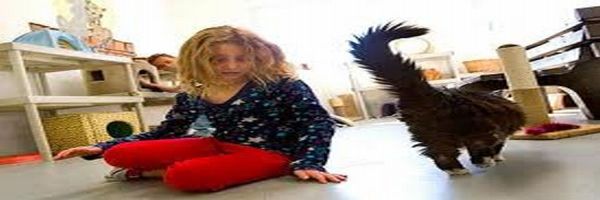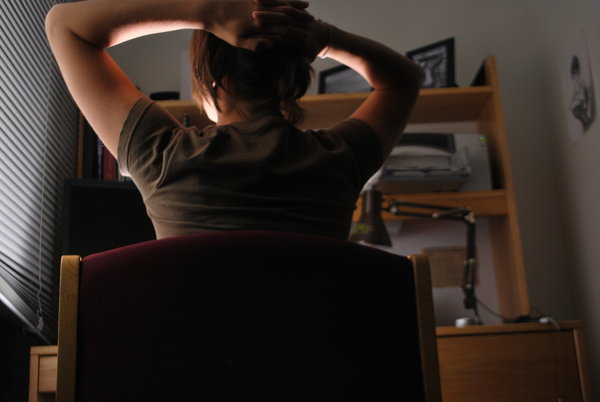
Childhood schizophrenia is a psychiatric disorder that severely affects the behavior of a child. The child turns psychotic with frequent feelings of hallucinations and delusion. The child is irritable and finds it difficult to carry out even routine work.
Causes of childhood schizophrenia
The exact causes of childhood schizophrenia are not known. It is a chronic mental disorder, the symptoms of which are same as that of schizophrenia in adults. However, nobody knows why this disease occurs so early in life. Some attribute it to genetics and faulty environment while others attribute it to the malfunctioning of neurotransmitters in the brain. Childhood schizophrenia is more common among kids having a family history of schizophrenia. If the fetus is exposed to viruses in the womb, then the chances of developing childhood schizophrenia increases.
Symptoms of childhood schizophrenia
Symptoms of childhood schizophrenia are mostly reported in teenagers. However, there are cases of very early onset of schizophrenia in much younger kids and even infants. Children suffering from schizophrenia may show signs of delay in their development as their mental capabilities get impaired. The child will have difficulty in learning languages. There may also be signs of abnormal movements such as flapping of arms and unusual crawling. These kids may start walking later when compared to normal kids. As this disease progresses in the child, there may be instances of hallucinations. In this case, the child may claim to see or hear things that do not actually exist. These children may appear aloof and talk incoherently. The child may throw tantrums even at the slightest provocation. Their performance at school may also be poor with this mental sickness.
Diagnosis of childhood schizophrenia
To diagnose childhood schizophrenia, doctor will first do a physical examination of the child. This will include measuring the heart rate, blood pressure, and temperature. Then, the child will be subjected to a battery of laboratory tests to rule out the possibility of other diseases. Some of the lab tests include CBC, thyroid function test, MRI scan of the brain, and EEG. Thereafter, the child will be asked to undergo psychological evaluation. This will assess the behavioral pattern of the child. The doctor will also determine if this child has suicidal tendencies or symptoms of self-destructive behavior.
Treatment of childhood schizophrenia
Schizophrenia is a chronic mental disorder and so the child will require treatment even when it seems that schizophrenic behavior and symptoms have subsided. Childhood schizophrenia is typically diagnosed and treated by a psychiatrist, but as this disease affects so many aspects of the child’s life and development, it is necessary to seek the help of other healthcare professionals in the treatment process. So, apart from psychiatrist, a pediatrician, psychiatric nurse, psychotherapist, and family members will also be involved in helping the child recover from schizophrenia.
Childhood schizophrenia is typically treated with medications, psychotherapy, and training the patient in social and academic sphere. Severe cases of schizophrenia may also require hospitalization for treatment. Some of the typical anti-psychotic medications used to treat schizophrenia in children aged 13-17 include risperidone and aripiprazole. They help in managing the usual symptoms of hallucinations, delusions, and emotional disturbances. However, these are long-term medications and can cause serious side effects such as weight gain, diabetes, and high cholesterol.
Apart from oral medications, psychotherapy plays an important role in helping a schizophrenic child to cope with his or her condition. Children with schizophrenia have poor social skills and their academic performance is below average. Therefore, these children are trained in improving their social and academic skills to help them behave in a manner that is appropriate for their age. Sometimes children with schizophrenia may become very violent and agitated. In case of these severe symptoms, the children are hospitalized to bring them under control and to ensure that they get proper nutrition. After being stabilized, they are discharged and subjected to residential care. Counseling of family members is also very important to sensitize them to their child’s mental condition.
Prevention of childhood schizophrenia
There is no sure-shot way of preventing schizophrenia. Nevertheless, parents should seek help from doctor when the child shows early symptoms of schizophrenia. In some cases, the symptoms of schizophrenia develop right at infancy. The infant will usually show development delays that should be immediately reported to the doctor.
Coping with childhood schizophrenia
As schizophrenia is a chronic mental illness, it is necessary to know more about childhood schizophrenia. Thus, educating yourself and your child will prove to be a motivating factor in helping you cope with the illness. It is often frustrating to deal with a schizophrenic child. Joining support groups of people having schizophrenic children in their families will surely help in developing a broader outlook.
It is not easy to deal with a child suffering from childhood schizophrenia. One may seek the advice of a psychotherapist to deal with excessive frustration and anxiety caused by this mental disorder. One may also find creative ways of structuring the time and energy of a schizophrenic child. It is recommended that you engage your child in hobbies, games, and exercises, as this will help the child in socializing and getting back to normal behavior.
In summary, an early detection and treatment will help in preventing the more serious psychotic instances associated with schizophrenia.



